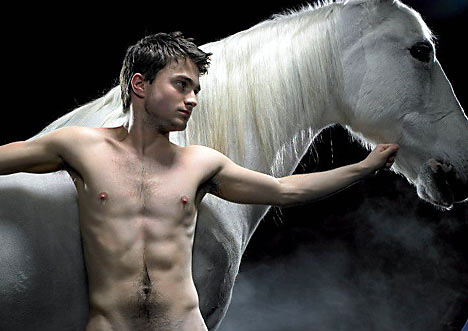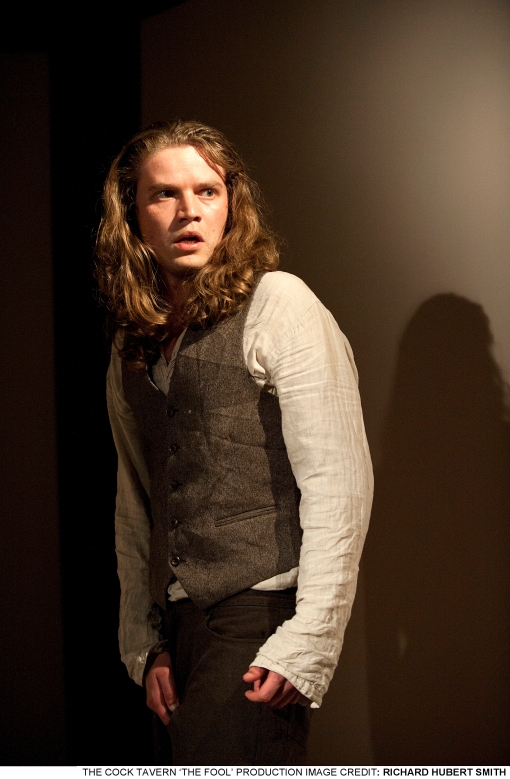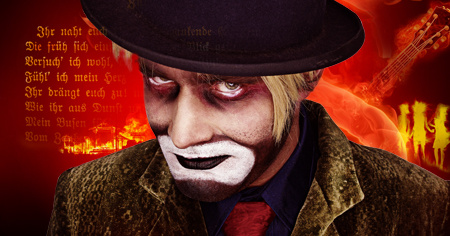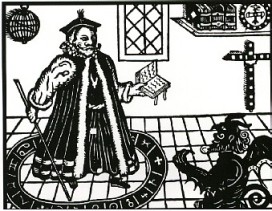Mark-to-market, hedging, special purpose entities and actors in dinosaur masks. Lucy Prebble’s play Enron confounded expectations and made the complex, number-driven world of global finance dramatic, comprehensible and even funny.
Enron opened at the Minerva Theatre, Chichester to ecstatic reviews in the summer of 2009, propelling Prebble to fame. The play transferred to the Royal Court, then to the West End and has just completed a national tour.

photography by Jordan Bassett
When we meet in a small coffee shop in Soho it’s hard to believe that the bright, brash West End show, came from the pen of such a polite and composed young woman – but that’s what makes Prebble so fascinating. Her main aim in writing the show was not, she tells me, to pass judgement or explain the complex financial camouflage that brought the company down – although it did both of these – but simply not to be boring.
“I felt really passionately that it would be very easy to write a play that says ‘we all know how this ends, we all know it’s terrible, aren’t all these people bad.’ We decided very early on it mustn’t be boring at any moment, because that’s what people expect of a play about corporate finance. But it is really fun, to work on a trading floor – it is really glamorous and it is really really profitable if you do it well. And those are all things human beings are drawn to and to pretend that we’re not is what perpetuates the cycle.”
Anyone who has seen the play will recall the “Raptors” – business entities which gobbled up Enron’s toxic debt. “It seemed completely appropriate,” explained Prebble, “to have dangerous financial instruments – financial instruments that have hurt people and broken their lives – come alive and be portrayed as vicious creatures, in this case velociraptors. So once you’ve decided that you’re essentially going to dramatise the theoretical and make it real, you’re already entering a slightly absurdist world, that’s not dull.”
 Enron opened at the height of the global credit crunch – although Prebble has always insisted this was down to luck rather than a gift of foresight. But she has become the go-to-girl for scripts on finance. “The last thing I want to be is the “money” girl or the girl who writes about finance. I find it really interesting and I wrote a play about it but now I find other stuff interesting.”
Enron opened at the height of the global credit crunch – although Prebble has always insisted this was down to luck rather than a gift of foresight. But she has become the go-to-girl for scripts on finance. “The last thing I want to be is the “money” girl or the girl who writes about finance. I find it really interesting and I wrote a play about it but now I find other stuff interesting.”
The stuff she finds interesting is, by her own admission, quite “full-on” – she’s currently working on a film about the Stasi and another play about humans used in drug trials. But what drew her to Enron was, she says, the macho aspect of the story.
“You can’t avoid the link between testosterone and risk-taking – it’s medically proven. In the locker-room world of the trading floor, you’re as big as your bonus is. It is quite phallic and aggressive and that’s part of the fun of it. The masculinity of the world never consciously entered my mind although I’m certain that subconsciously I was drawn to it because of that.”
When I suggest a parallel with what seems to be a male-dominated world of theatre writing, Prebble pulls me up. “You’ll find a lot of women writers – in the theatre – who do one or two plays and then aren’t seen much more. The reasons for that aren’t necessarily related to gender specifically but more practical. You’ll find a huge amount of women who started off in theatre but move into film and television because it’s much more financially rewarding and it’s a child friendly profession. Women writers are still writing, they’re just writing in a different medium, in a way that suits them better.”
 Prebble knows a thing or two about the medium of TV: she created the series Secret Diary of a Call Girl after coming across the Belle de Jour blog. The Belle character, who chose to become a high-paid prostitute and document her exploits online, proved as controversial as she was popular and Prebble, who left the series after writing the first 18 episodes, admits she had trouble with the character and the kind of scripts she was being asked to write.
Prebble knows a thing or two about the medium of TV: she created the series Secret Diary of a Call Girl after coming across the Belle de Jour blog. The Belle character, who chose to become a high-paid prostitute and document her exploits online, proved as controversial as she was popular and Prebble, who left the series after writing the first 18 episodes, admits she had trouble with the character and the kind of scripts she was being asked to write.
“I left the series because I felt that, unfortunately, I wasn’t really being allowed to write what I wanted to write – more ambitious, complex drama. That’s the problem with Television really: yes you get paid more and yes you probably get more consistent work but you’re really not in control of your product at all.”
And this is a constant dilemma for Prebble: writing for TV is consistent but often comes without recognition; writing for theatre is respected but comes with intense scrutiny. After her first play, The Sugar Syndrome, was put on Upstairs at the Royal Court, Prebble struggled with a lack of self-confidence and after she had a play rejected in what she calls “the worst meeting I’d ever had in my life”, she turned to television.
“In TV no one knows who writes their favourite shows, no one even knows who’s written their favourite films, so I found that strangely helped me because I didn’t feel a lot of pressure on me personally. I felt like I was contributing to something that was bigger than me. Bizarrely, even though theatre’s the place where you get the most respect as a writer, it’s the place where you also get the most attention, the focus. And if you’re not the sort of person who necessarily wants that, it can be quite intimidating.”
As she talks it becomes clear that although Prebble has had enormous success as a writer, she has also been through the mill a bit to get there. She speaks of the loneliness of the writer, her self-doubt and the huge amount of will-power needed to get something on the page. “Writing is honestly, a depressing experience and it’s an act of getting over your own lack of self-confidence to write something. Mostly I have to get myself to a place of such self-disgust in how depressed I am about how little I’ve written that I’m then forced into writing something.”
But then, I suppose no one ever said being a critically acclaimed writer was easy.



 The real Anna Nicole
The real Anna Nicole


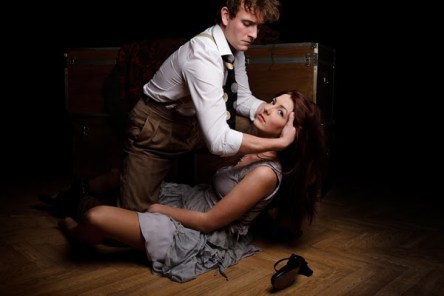




 Enron opened at the height of the global
Enron opened at the height of the global  Prebble knows a thing or two about the medium of TV: she created the series
Prebble knows a thing or two about the medium of TV: she created the series 